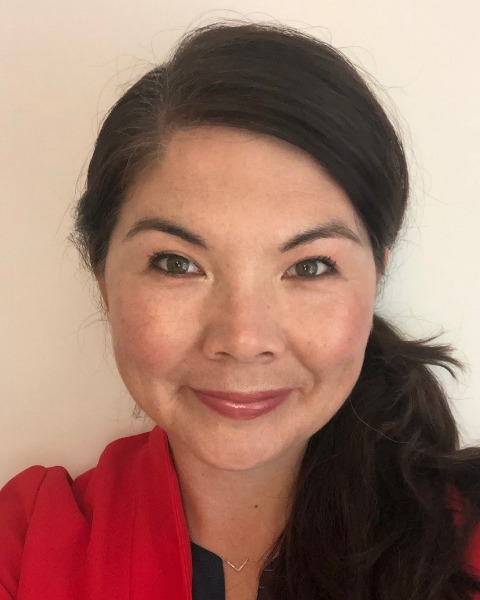Program Area: Interdisciplinary
Preclinical Dementia Care and Prevention in Context: From Insights to Action
-

Daniel Rong Yao Gan, PhD
CIHR Fellow
Gerontology
Simon Fraser University
Vancouver, British Columbia, Canada -

Patricia Heyn, PhD, FGSA, FACRM
Founding Director
Center for Optimal Aging
Center for Optimal Aging, Marymount University
Fairfax Station, Virginia, United States -

Emily Greenfield, PhD
Professor of Social Work
School of Social Work
Rutgers, The State University of New Jersey
New Brunswick, New Jersey, United States -

Carol Podgorski, PhD, MPH, MS
Professor of Psychiatry
Psychiatry
University of Rochester
Rochester, New York, United States -
CM
Christine Mair, PhD
Associate Professor
Department of Sociology, Anthropology, & Public Health
University of Maryland, Baltimore County (UMBC)
Baltimore, Maryland, United States -

Claire Wang, MHS Candidate
Research Assistant
Gerontology
Johns Hopkins University
Baltimore City, Maryland, United States -

Mariko Sakamoto, PhD, RN
Postdoctoral Fellow
Centre for Research on Personhood in Dementia
University of British Columbia
Vancouver, British Columbia, Canada -

William McConnell, PhD, MS
Assistant Professor
Sociology
Florida Atlantic Unversity
Boca Raton, Florida, United States
Chair(s)
Co-Chair(s)
Discussant(s)
Individual Symposium Abstract First Author(s)
Dementia affects people with lower socioeconomic statuses disproportionately. People with undiagnosed Alzheimer’s disease may or may not express dementia symptoms depending on their brain reserve, cognitive reserve, and their ability to compensate for brain pathology. Much of these depend on their childhood education, but late-life social engagement may also play a role. As lifespan increases globally, preclinical dementia care and prevention in community settings will be increasingly important. The characteristics of everyday environments that are kind to various changes amid declining cognition may enhance the quality of life of older adults with and without dementia. Such environments may be available or unavailable in diverse communities of varying socioeconomic statuses. This collaborative symposium between the ADRD and CEnR interest groups brings together multidisciplinary scholars to imagine psychosocial interventions that could mitigate place-based disparities in cognitive health. The first presentation frames the importance of relational perspectives in a biopsychosocial-ecological model of care amid cognitive decline. The second presentation shows the cognitive impact of networks among kinless older adults across Europe. The third presentation explores community perspectives on preventive brain health programs in various neighborhoods. The fourth presentation centers the voice and action of people with dementia to improve their neighborhood social environments. The final presentation identifies policy implications for community-based care and prevention from network perspectives. Discussions will distil the significance of community for persons living with and without dementia diagnosis to generate place-based interventions that may better support care and prevention in diverse settings, and identify structural barriers to these efforts.
Learning Objectives:
- articulate the significance of community for persons living with preclinical dementia from psychosocial perspectives.
- list examples of place-based interventions to better support dementia care and prevention in the community.
- identify structural barriers to friendship among persons living with preclinical dementia.
Presentations:
-
5:30 PM – 7:00 PM ETA Biopsychosocial-Ecological, Family-Framed Approach to Dementia Care
Individual Symposium Abstract First Author: Carol Podgorski, PhD, MPH, MS – University of Rochester
-
5:30 PM – 7:00 PM ETKinlessness and Cognitive Function Among European Older Adults
Individual Symposium Abstract First Author: Christine A. Mair, PhD – University of Maryland, Baltimore County (UMBC)
-
5:30 PM – 7:00 PM ET“People Don't Live in a Vacuum”: Co-Developing a Brain Health Pilot Program in the Community Through Citizen Science
Individual Symposium Abstract First Author: Claire Wang, MHS Candidate – Johns Hopkins University
-
5:30 PM – 7:00 PM ETFlipping Stigma on its Ear: A Toolkit from Participatory Action Research
Individual Symposium Abstract First Author: Mariko Sakamoto, PhD, RN – University of British Columbia
-
5:30 PM – 7:00 PM ETSocial Networks and Cognitive Function: Policy Implications from Recent Research
Individual Symposium Abstract First Author: William R. McConnell, PhD, MS – Florida Atlantic Unversity
